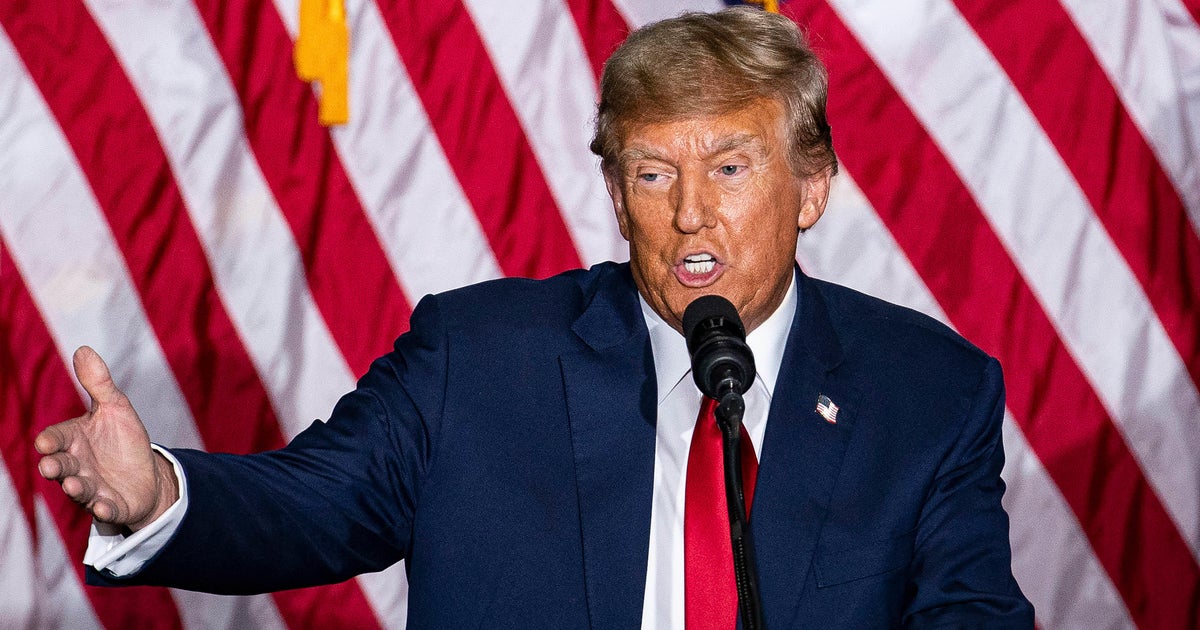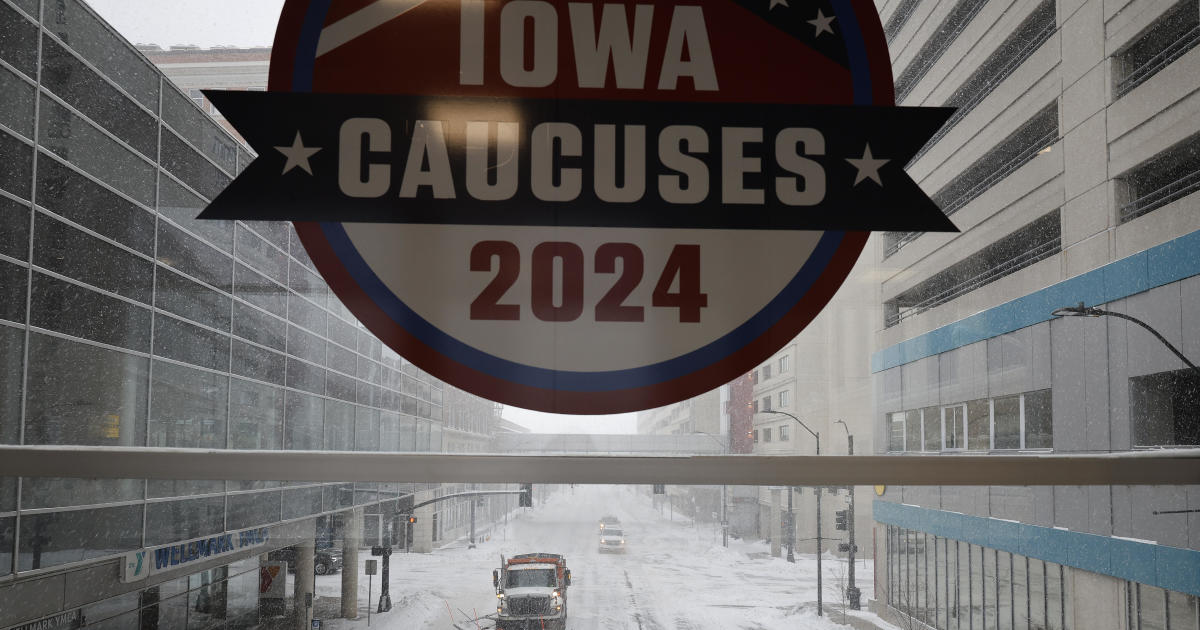How many delegates does Iowa have, and how will the caucuses impact the 2024 presidential nominations?
Washington — The first presidential nominating contest kicked off on Monday with the Iowa caucuses, as the Republican White House hopefuls eyed a boost to kickstart the election year ahead and began seeing the results of their campaigning so far.
Just 40 Republican delegates were up for grabs in the Hawkeye State in 2024 for the national convention, with former President Donald Trump, the projected winner, securing 20 delegates. But since the state is the first in the nation, it offers candidates a unique chance to build momentum at the outset of the contest. Accordingly, candidates have invested heavily in the first nominating contest. But how they perform in Iowa alone won't necessarily dictate the party's nominee.
How do delegates work?
The delegates are allocated proportionally to each candidate. Those delegates will go on to the county convention, where delegates are elected to the district convention before the process continues for the state convention and finally the national convention, where they will join delegates from other states to select the party's nominee for the November election at the national convention this summer in Milwaukee.
"So, at the beginning of the process, it's a little chaotic," says Rachel Paine Caufield, professor and co-chair of the political science department at Drake University in Des Moines. "By the end of the process, of course, we know generally who the nominee will be, and oftentimes the state party organization at the state convention will direct our delegates to support whoever it is that's going to get the nomination."
How many delegates does a candidate need to win the nomination?
A candidate must receive the majority of their party's delegates to win the nomination. For Republicans, there are nearly 2,500 delegates, and a candidate needs 1,215 delegates to win the nomination. For Democrats, there are around 3,900 delegates, and 1,969 are needed to win.
How will the caucuses impact 2024 presidential nominations?
What Iowa lacks in sheer number of delegates, it's historically made up for in outsized influence.
The first-in-the-nation contest generally offers bragging rights and a boost to the winners, while a disappointing performance often sifts out trailing candidates.
Democrats met only to conduct party business on Monday, and Iowa Democrats are voting by mail, with results to be announced in March, on Super Tuesday. Iowa's caucuses mainly present a high-profile test for the Republican presidential hopefuls by virtue of being first.
Trump, who had been consistently leading in the polls, was projected to win Iowa, with DeSantis placing second and earning eight delegates, and Haley following closely in third, walking away with seven delegates. DeSantis in particular bet big on Iowa, while Haley's focus has been more on the New Hampshire primary to come on Jan. 23.
DeSantis, who visited all of Iowa's 99 counties and was endorsed by Gov. Kim Reynolds, told "CBS Mornings" on Monday that his campaign felt "really good" heading into the caucuses and said Iowans were still weighing whether to support Trump or him.
"It's about the future of the country," DeSantis said. "I've delivered on 100% of my promises. You know, Donald Trump did not build the wall, did not drain the swamp."
Following his fourth-place finish in Iowa, biotech entrepreneur Vivek Ramaswamy announced he would be suspending his campaign and backing Trump.
for more features.



